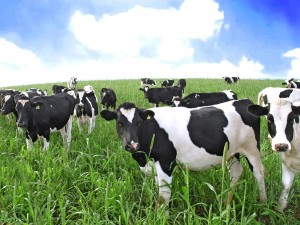 rocessors are continuing to chase Asian dairy markets, with dairy co-operative Murray Goulburn boosting its infant formula export capacity, while Japanese-owned Lion is shifting its focus to consumer products such as iced coffee and gourmet cheese.
rocessors are continuing to chase Asian dairy markets, with dairy co-operative Murray Goulburn boosting its infant formula export capacity, while Japanese-owned Lion is shifting its focus to consumer products such as iced coffee and gourmet cheese.Murray Goulburn invests to boost export capacity
Murray Goulburn has continued to roll out its $127 million capital investment plan, announced by Devondale Murray Goulburn Managing Director Gary Helou earlier this month, with a $19 million investment at its Koroit facility and a $91 million investment in its Cobram facility.
Mr Helou said the investments were part of the Company’s five year plan to rejuvenate its manufacturing and supply chain infrastructure in the key product areas of nutritional powders, cheese and liquid milk.
Murray Goulburn said the Koroit investment will increase its capacity to produce nutritional products destined for Asian consumers.
The Koroit site – which is the largest dairy manufacturing facility in Australia – currently produces approximately $600 million annually of premium, mainly export destined, dairy products including powders for infant nutrition and bulk ingredients; retail butter, bulk butter, and retail milk powder.
Mr Helou said Devondale Murray Goulburn had identified the growth of nutritional products, such as infant formula, as a significant opportunity to add value above commodity milk powders to customers in China and South-east Asia.
“Among the products that are driving demand are nutritional milk powders, particularly baby and follow-on formula for toddlers,” Mr Helou said.
“Global demand for infant formula is expected to increase by more than four per cent in 2017,” Mr Helou said. “Follow-on formula is expected to grow by more than six percent and growing-up milk powder will exceed seven per cent growth,” he said.
Murray Goulburn said the investment at Koroit would increase the capacity to produce these products by installing the necessary capability on existing production lines.
It said the investment would also secure “sustainable, skilled jobs in the region” with current staff to be trained to produce the new, higher value-add products.
Work has already commenced on the Kotroit project, which is expected to be fully operational by May 2015.
The $91m investment at the Cobram facility will see the facility upgraded with world leading technology for processing and packaging a range of dairy foods destined for Asian and Australian consumers.
“Customers and consumers value Australia’s food safety standards, regulations and our natural production environment – they want to buy finished goods from Australia, in addition to bulk commodities,” Mr Helou said.
Part of the Cobram investment will include $74 million to build a “world class” cheese cut and wrap facility at Cobram over the next 12-18 months. Mr Helou said the investment in the new equipment and automation would increase capacity across cheese portions and slices, as well as shredded cheese.
An additional $17 million will be invested in optimising capacity for Nutritional products at Cobram. Murray Goulburn said the investment would enable it to produce a wider range of high value nutritional products.
“This investment supports Murray Goulburn’s journey to become the first choice dairy food supplier to customers and consumers in Australia and overseas and represents an important step towards delivering on our commitment to significantly increase underlying farmgate returns for Murray Goulburn suppliers,” Mr Helou said.
Lion to focus on iced coffee and gourmet cheese
Meanwhile, Lion, which is a subsidiary of Japanese food and beverage company Kirin, has revealed it will focus on iced coffee and gourmet cheese to drive its expansion into Asian markets.
Lion’s dairy and drinks division chief, Peter West, who joined the Company in January 2014, told The Australian newspaper that sales of iced coffee such as Lion’s Dare and Farmers Union brands now outpace cola sales in the Australian convenience store market. He said further growth was possible by targeting Asian consumers, either with UHT products that could be shipped from Australia, or by partnering with Asian manufacturers.
Mr West said he planned to almost halve the Company’s product range as he sought to refocus on faster-growing parts of the market. He said the business drew 80 per cent of revenue from just 200 different products, while many of the remainder moved so slowly that they often spoiled before they could be sold.
Mr West said Japanese parent company Kirin was committed to the business, which was created via the acquisitions of National Foods and Dairy Farmers in 2007 and 2008 respectively.
Lion said “everyday’’ cheese brands were not a strategic focus for the Company, which was also moving away from private label milk following the loss of supply contracts to Coles and Woolworths.
Export sales are currently less than 5 per cent of Lion’s revenue, but Mr West said 80 per cent of demand growth for packaged groceries was coming from emerging markets.





